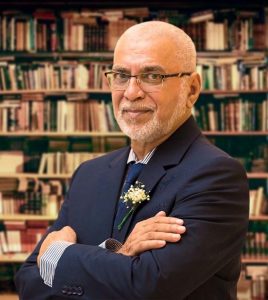“O you who believe, fasting is prescribed for you as it was prescribed for those before you, that you may develop Piety (Taqwa).” 2:183
Ramadan is the month of heightened God-consciousness, of attaining unto piety, of training ourselves to be the best we can be; a month to initiate improvement of reputation, character and cultivating good habits.
People who try their best to live by the highest values are surely people of integrity and indeed people of moral conscience. Morality describes the principles that govern our behaviour and relates to our behaviour at three levels …
- how we as individuals ensure that we are honest, just and compassionate,
- how we interact with and contribute to society, as asset or liability,
- how conscious we are of our accountability to our Creator.
In a world, increasingly amoral, perception is considered reality. How one appears to the world has overtaken the substance of who we really are. Impressions, whether real or fake, are given more credence than they deserve. Though name, image and reputation are what we perceive of people, character is the essence of the “real self”. Piety is in reality character development coupled with God-consciousness.
Character is not only the face in the mirror, but the real person behind the face. Character evolves from conscience; is sustained by conscience and is developed, piece by piece, with every thought, with every choice, and maintained with consistency and determination. The pursuance of piety begins by making our reputation a reflection of our character. In many people, reputation precedes the character and there is a distinction to be made …
- Reputation is what you lead others to believe you are, character is what you really are,
- Reputation may be reflected in the combination of your name and your image, character is the essence of your being,
- Reputation is the wrapping, character the content,
- Reputation is the outer reflection, character the inner reality,
- Reputation is made in a moment, character is built in a life time,
- Reputation may be reflected in what people write about you on your tombstone, character is what angels report about you to God, the Almighty.
Aristotle said: “You are what you repeatedly do”. Habits are conditioned responses, formed through repetition, until the actions or reactions become second nature; they end up as unconscious behaviour, automatic reactions in a particular situation.
Thinking in a particular pattern creates a mental path, the mental path affects our attitude and our behaviour, and these reflect our personality and character. In other words, our thoughts affect our attitudes, which affect our actions, which determine our habits, which reflect our character, which could determine our destiny.
According to Islam, habits are classified as virtues or vices, as repeated actions that are in conformity with or contrary to the rules of morality. Virtuous character emanates from good habits and good habits emanate from resisting negative temptations. Good habits, unfortunately, seem so much easier to give up than bad habits. Bad habits are like a comfortable bed; easy to get into but difficult to get out of. The chain of bad habits is generally too light to be felt until they are too strong to be broken. Every habit, whether good or bad, is acquired and can be developed or disowned. Habits decrease or disappear by abstaining from exercising them and then replacing them.
Ramadan is an ideal training period for filtering out bad habits and developing virtuous character. Prophet Muhammad (saw) is reported to have said: “There comes to you the blessed month of Ramadan, a month in which Allah has made fasting obligatory on those who are able; whosoever denies himself of the benefits of that month denies himself many virtues”
As we undertake the physical and spiritual responsibility of fasting in the blessed month of Ramadan, we reflect on the words of our beloved Prophet Muhammad (saw) who said: “Your practice of faith will not be correct unless your actions are correct, and your actions will not be considered correct unless your heart is correct”.
Bashir Nuckchady




![[Message de l’Eid-Ul-Fitr 2024] Atteindre la piété… Et après ???](https://sundaytimesmauritius.com/wp-content/uploads/2023/10/Bashir-new-218x150.jpg)


![[Democracy Watch Mauritius] The Rwanda genocide started 7th April 1994, 30 years ago. Has humankind learnt the lesson? Consider Israel’s action in GAZA today!](https://sundaytimesmauritius.com/wp-content/uploads/2024/03/democracy_0-218x150.jpg)



![[EDITO] De coq à l’âne](https://sundaytimesmauritius.com/wp-content/uploads/2024/04/Zahirah-150x150.jpg)



![[EDITO] De coq à l’âne](https://sundaytimesmauritius.com/wp-content/uploads/2024/04/Zahirah-100x70.jpg)